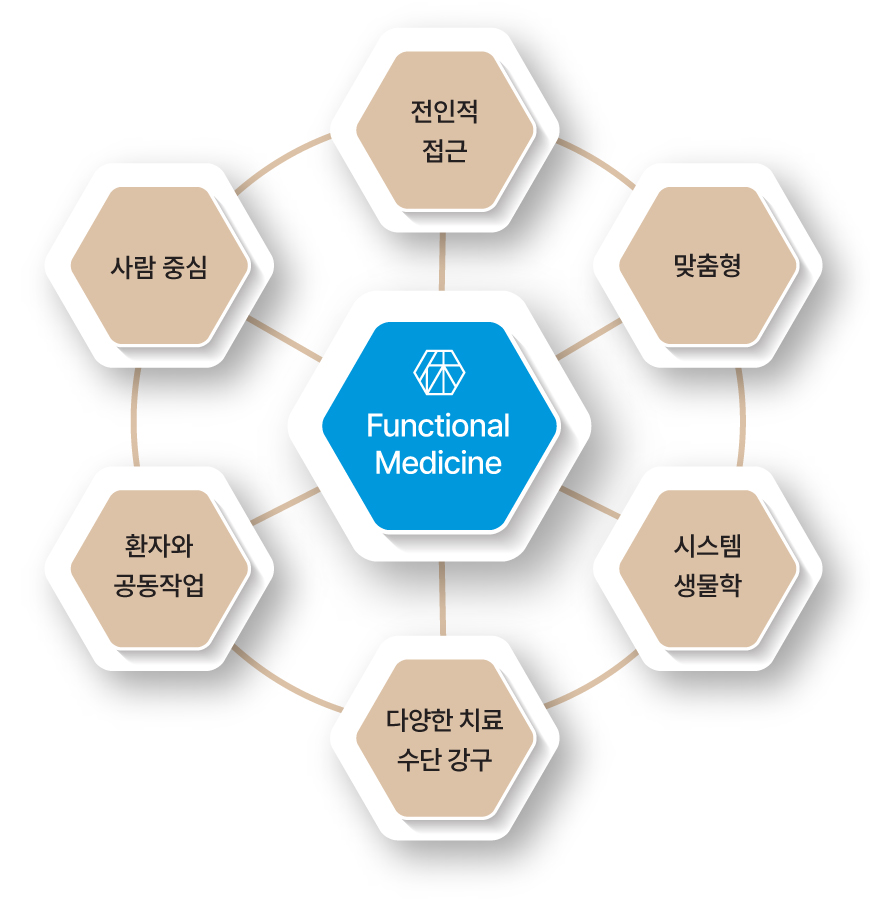Functional Medicine
Functional Medicine

“Will you treat the symptoms that appear on the surface, or will you heal the root cause of the disease?”
Functional medicine is based on analyzing and understanding the root causes of chronic diseases. It promotes a healthy life by providing personalized healing through an integrated medical approach. A healthy life is not merely the absence of disease, but a state of positive vitality filled with energy, joy, gratitude, and balance.
Traditional medicine excels in emergency medicine and surgical fields. Dominating the 20th century, traditional medicine focused on treating infectious diseases and injuries. It diagnoses symptoms and prescribes medications to manage them, which is highly effective in emergencies. However, when it comes to chronic health issues or areas that are difficult to diagnose, a shift from the conventional approach is necessary.
The reason functional medicine is gaining attention is that it represents a paradigm shift, highlighting the ineffectiveness of traditional medical approaches in treating chronic diseases. The functional medicine approach offers profound and lasting effects for patients.
Functional Medicine Model
The functional medicine model has evolved from the insights of medical professionals who recognized the importance of a personalized approach to understanding the causes of disease, based on research in nutritional science, genomics, and epigenetics.
Functional medicine takes a holistic, patient-centered, and science-based approach, looking at the root causes of diseases or symptoms. It emphasizes not only the recovery of health but also the prevention of disease through a comprehensive method.
Rather than merely identifying the surface-level disease, functional medicine can be understood as a GPS system that explores the physiological pathways and mechanisms behind disease environments. It also examines the patterns present within the whole system of the body and disease.
Functional medicine plays the role of connecting the dots between everything that is going wrong within the body. In traditional medicine, where specialties are compartmentalized, such an approach is challenging.
The conventional method involves visiting a gastroenterologist for digestive issues or a dermatologist for skin problems. However, functional medicine looks at the person and the disease as a whole.
For example, the primary cause of a skin problem might actually reside in the gut, and the gut issue could be the result of impaired neural activity in the brain.
By analyzing, investigating, and understanding how various biological systems function and interconnect, functional medicine intervenes at the root cause of the problem.